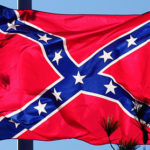WASHINGTON (RNS)—An interfaith coalition has told the Supreme Court there is “no principled basis” for President Trump’s travel ban on Muslim-majority nations.
The Baptist Joint Committee for Religious Liberty signed the amicus brief filed Sept. 5, along with other groups including the National Council of Churches, the Muslim Public Affairs Council, the Sikh Coalition and Catholic, Jewish and Muslim leaders.
The ban temporarily prevents citizens from six nations from entering the United States—Iran, Libya, Somalia, Sudan, Syria and Yemen.
The interfaith coalition members argue Trump’s March 6 executive order is “anathema” to the core tenet of religious tolerance they share. They say the order “selectively targeted” six Muslim-majority nations cited in State Department reports on terrorism but excluded at least two Christian-majority nations—Venezuela and the Philippines—that meet the same criteria applied to the Muslim countries.
While not contending that those two countries should be included in the ban, the coalition argues the order violates the Constitution’s establishment clause, which calls for the government to not favor one religion over another.
Another interfaith group challenged the ban in a separate June 12 friend-of-the-court brief, arguing it targeted Muslims and harms the ability of faith organizations to aid refugees fleeing persecution and war.
Numerous other groups also have filed briefs in the case. They range from the Eagle Forum Education and Legal Defense Fund, which argues in support of the travel ban and states that “aliens abroad have no constitutional rights,” to the Becket Fund for Religious Liberty, which argues a different aspect of the Constitution—the free exercise clause—should be considered in this case. Becket’s brief is not in support of either party in the case.
The high court blocked a decision by the 9th U.S. Circuit Court of Appeals that would have eased aspects of the ban and allowed the entry of tens of thousands of refugees by the end of October.
Sign up for our weekly edition and get all our headlines in your inbox on Thursdays
The Supreme Court has scheduled arguments related to the ban on travelers from the six countries for Oct. 10.














We seek to connect God’s story and God’s people around the world. To learn more about God’s story, click here.
Send comments and feedback to Eric Black, our editor. For comments to be published, please specify “letter to the editor.” Maximum length for publication is 300 words.